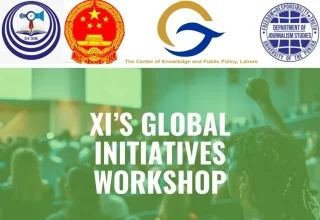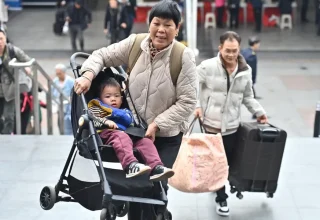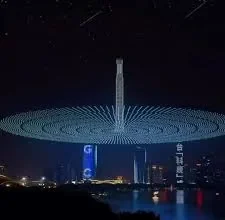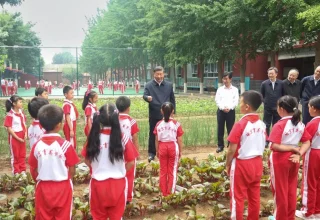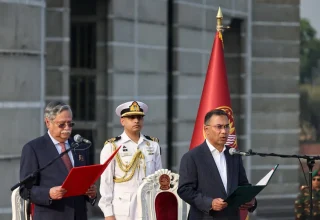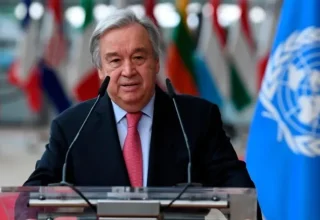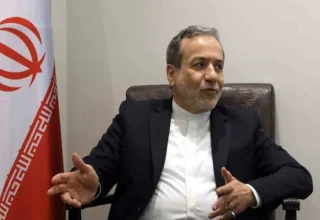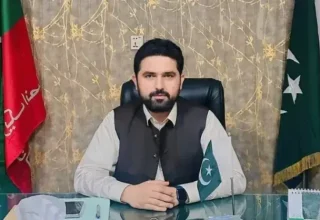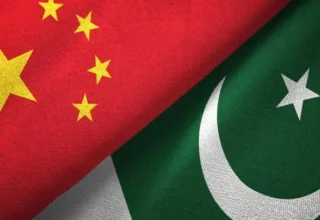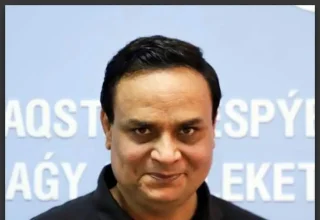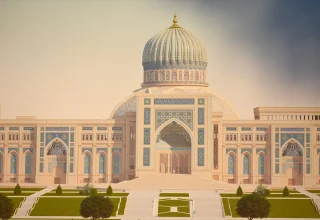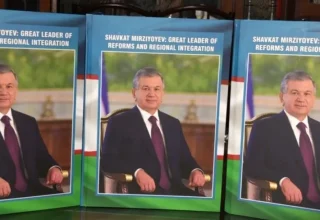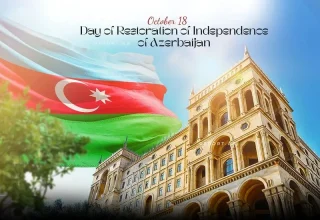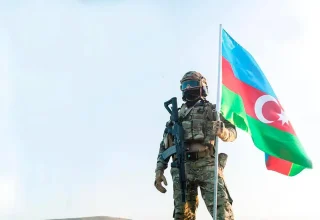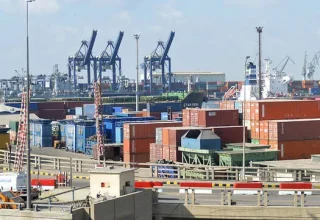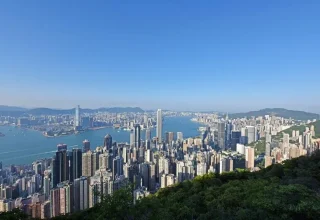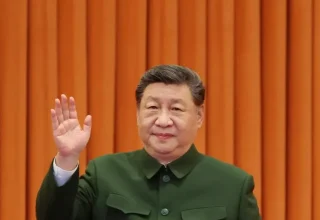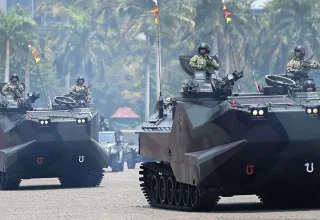
Indonesia’s strategic location in the Indo-Pacific Region holds political, economic, and geographical positions that require a proper defense system.
Indonesia’s defence policy under incumbent President Prabowo Subianto seems to be a distinctive departure from his predecessor’s approach, particularly through greater centralisation and direct presidential control.
However, several overlapping key factors especially in defence diplomacy, modernisation and military engagement in non-combat roles purpose continuity with policies undertaken during his prior tenure as defence minister.
It seems that President Prabowo Subianto’s rich military background and his previous tenure as Indonesia’s defence minister have led many experts to predict a more forceful and centralized policy to defence policymaking.
The writer personally appreciates President Prabowo selection of his long-time associate Sjafire Sjamsoeddin, his classmate at the military academy and former colleague in the Army Special Forces as minister, vividly reflecting the following of a tightly coordinated and personalised defence policy. Moreover, key slots to armed forces personnel in the civilian government have further strengthened his coordinated governance to further diversify defense capacities.
Additionally, Indonesian President Prabowo’s ongoing centralised approach to defence policymaking clearly demonstrates a departure from the relatively hands-off style of the former President Joko Widodo. However, several elements of continuity are evident in the substance of defence policy, particularly in Indonesia’s defence diplomacy, modernisation priorities and the military’s growing role in civilian sectors.
Critical analysis of Indonesian government’s various policies pertaining to defense reveals that initially President Prabowo enunciated a good neighbour policy, pledging to maintain good relations with all friendly states irrespective of geopolitical alignments articulating Indonesia’s longstanding “independent and active” foreign policy doctrine manifesting in a series of recent defence diplomacy initiatives.
Afterwards, holding of joint naval exercise with the Russian Navy in November 2024 reflected some imminent deviations in his defense diplomacy. However, it proved familiar with Jakarta’s defence diplomacy engagement with Moscow in recent years.
Evidently, Jakarta is revisiting its defence relations with Beijing. Indonesia and China conducted limited-scale joint special-forces exercises under the “Sharp Knife” banner from 2011 until its suspension in 2015 following maritime rights disputes in the Natuna Sea.
However, the holding of Indonesia-China bilateral military exercises in December 2024 “Heping Garuda” focusing on humanitarian assistance and disaster relief indicates deepening engagement between the two countries.
Hopefully, despite these new engagements, Jakarta will continue to engage in defence diplomacy with long-standing partners such as the United States and Australia. Between 2003 and 2022, Indonesia participated in more than 100 joint exercises with the United States on top of routine military training and educational exchanges. High-profile multilateral exercises such as the Super Garuda Shield underscore the depth of these partnerships.
Hence, Indonesia’s defence diplomacy is multi-layered, futuristic, holistic and balanced achieving defense diversity, ensuring strategic independence, by maintaining a balance across major powers, consistent with the nation’s foundational foreign policy principles.
It appears that Indonesian President Prabowo is also continuously emphasizing on the defence modernisation agenda by introducing Perisai Trisula Nusantara (Nusantara Trident Shield), a long-term defence modernisation program to succeed the Minimum Essential Force (MEF) programme.
Thus ongoing coordinated efforts and collaborative political policies should be considered as acquiring new, and upgrading outdated, defence equipment and enhancing inter-service interoperability. Hopefully it is and will be the guiding blueprint for future modernisation efforts.
It is indeed to enhance Indonesia’s land, naval and air capabilities through major defence acquisitions. The tentative shopping list includes Rafale, F-15EX and KAAN fighter jets, Scorpene submarines, Bora tactical ballistic missiles, BrahMos medium-range missiles, and the indigenously constructed “Red-White” frigates, among others. Interestingly, Perisai Trisula Nusantara is projected to cost approximately US$125 billion over a 25-year period.
The Indonesian National Armed Forces (TNI)’s involvement in civic missions and non-combat roles across sectors such as health, cyberspace and food security has been expanding since the Widodo era under the framework of “military operations other than war”.
The TNI had signed numerous MOUs with ministries, state agencies and local governments for its involvement in various civic missions. This trend appears poised to continue under President Prabowo.
For instance, Prabowo has advised the TNI to assist with his administration’s food resiliency programs, including the food estate program that the Ministry of Defence was put in charge of by President Widodo in July 2020.
In summary the incumbent government of President Prabowo pursues a holistic and comprehensive defense policy and diplomacy showing an ideal combination of assertive leadership and policy continuity, centralised decision-making and last but not least, sustained strategic priorities.
It seems to be an extension of Prabowo’s tenure as defence minister with certain organizational modifications supporting more direct presidential control over the defence policy making agenda. Thus ongoing defence diplomacy, military modernisation and involvement of the military for rapid and successful policy delivery in non-defence areas will continue.
Obviously President Prabowo’s early defence policy confirms a deliberate effort to further strengthen strategic autonomy while projecting stronger state capacity through the military. Hence defence modernisation and diplomacy upholds a pragmatic orientation that seeks to maximise Indonesia’s geopolitical flexibility amid intensifying great power rivalries.
Interestingly, the expanding scope of the TNI’s “military operations other than war”, as evident in its involvement in the government’s non-defence policy areas, signals a deeper trend of securitisation that blurs the boundaries between the civilian and military domains.
The recent visit of Indonesia’s Defence Minister, Lieutenant General (Retired) Sjafrie Sjamsoeddin, to Pakistan has further enhanced mutual cooperation in defense production, energy and food security, maritime affairs, anti-terrorism, and coordination across various sectors including the economy, trade, investment, and joint ventures.
His series of high-level meetings with Prime Minister Shehbaz Sharif and Field Marshal General Asim Munir vividly reflected both countries’ serious intentions to deepen defence ties and explore potential collaboration in defence production.
These meetings were timely with certain geopolitical and geostrategic importance because of rapidly changing geopolitical and geostrategic scenarios emerging in the region and beyond urging a closed cooperation and coordinated efforts to mitigate these spillover repercussions.
The best defense diplomacy for Indonesia would be creating a strategic balance between Pakistan and India in the days to come. The emerging diplomatic rift on the issue of trade & tariffs war between US and India has a silver lining providing opportunity for policy shifting to Jakarta towards Pakistan. Otherwise, pace, scope, and utility of bilateral relations between the two brotherly countries would be derailed.
To conclude, a closed maritime cooperation between two countries would further gear blue economy, climate change, disaster management and above all anti-terrorism spheres. More than seven decades since Indonesia’s independence, the pursuit of a self-reliant national defense industry remains an elusive goal which may be further strengthened with increasing defense cooperation and joint military production with Pakistan in the days to come.






